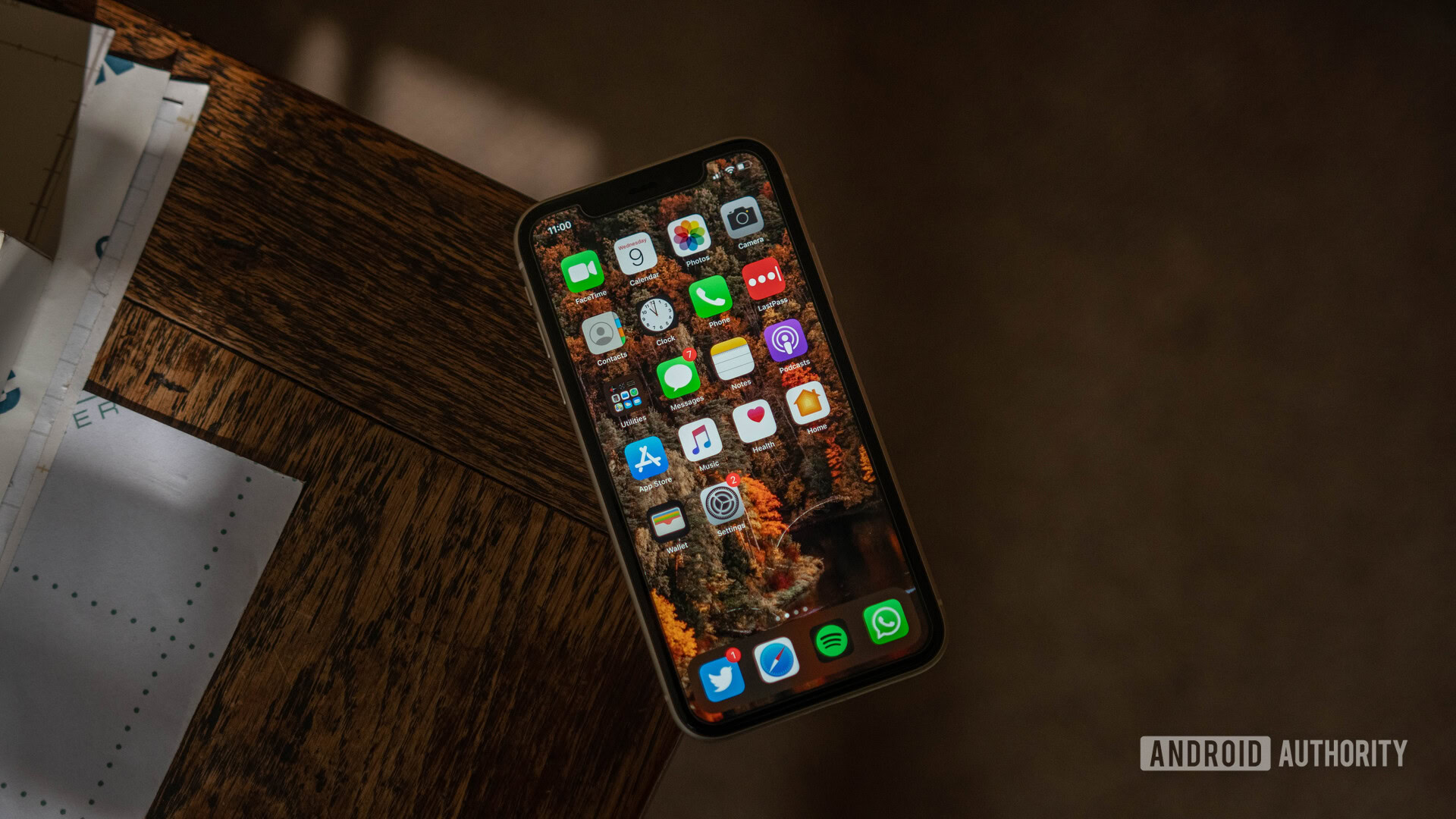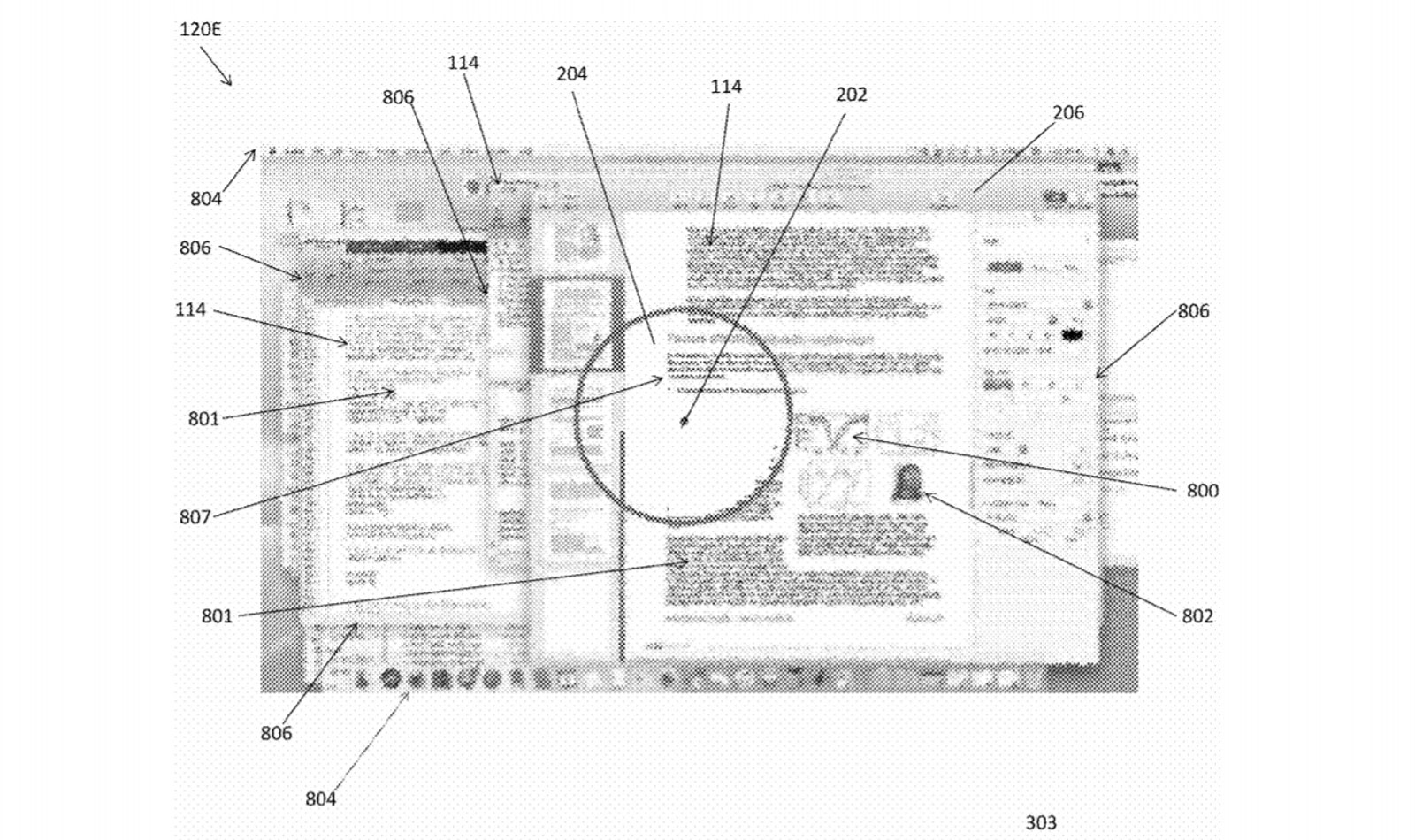Affiliate links on Android Authority may earn us a commission. Learn more.
Apple's new patent might stop people peeping at your screen

Privacy is incredibly important on our smartphones, as these devices contain a ton of sensitive content. But when we think about privacy, we don’t often think about something as simple as people looking at our screen over our shoulder.
Now, Apple has filed a patent at the US Patent and Trademark Office (h/t: Apple Insider) for new smartphone, tablet, and laptop technology that could stop nosy people in their tracks. The patent is called Gaze-Dependent Display Encryption, and it essentially detects what part of the screen you’re looking at and obscures the rest of the display.
“In this way, only the display content that the user is actively viewing is recognizable and understandable and an onlooker such as an unwanted observer looking over the user’s shoulder is unable to understand what is displayed,” reads and excerpt of the patent summary.

Furthermore, Apple says the obscured areas can feature the same overall look and structure of the screen area you’re currently looking at, but the actual content in these areas will be illegible.
This isn’t the first time we’ve seen a solution to unwanted people peeking at smartphone screens, as recent BlackBerry smartphones offer Privacy Shade functionality. But the big difference between Apple’s proposed solution and BlackBerry’s feature is that the latter solution requires you to move your finger over the part of the screen you wish to read. Furthermore, Privacy Shade also blacks out the rest of the content, which could attract more attention from a nosy person.
One potential challenge for Apple in delivering this feature is developing accurate gaze detection. Smartphone sensors are already capable of detecting whether you’re looking at a device or not (using this for face unlock), but detecting specific areas of the screen seems like a bigger hurdle. We’ve previously seen Samsung offer Smart Scroll technology, which let you scroll through pages without using your finger. But this feature required you to either tilt the device or your head to conduct scrolling.
This patent filing isn’t a guarantee that the next iPhone, iPad, or Macbook will have this capability, but it certainly seems like a handy feature. Hopefully Android OEMs develop similar solutions for screen privacy.